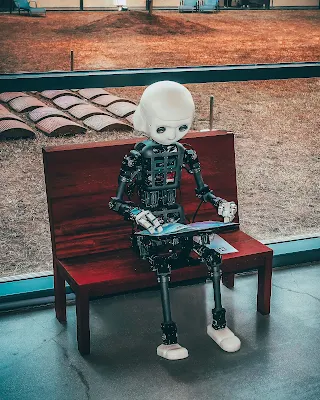1. Autonomous AI Agents
2.Text to Video Ai
AI's ability to produce lifelike visuals has already been demonstrated. Imagine, however, that you could type a line like, "A dragon flying over a futuristic city at sunset," and a whole movie would be returned. This future is already being hinted at by tools like Runway, Pika Labs, and OpenAI's Sora. Without a camera, producers will be able to use this technology by 2025 to produce short films, advertisements, instructional materials, and possibly even full-length films.
3.AI Companions And Human Digital
You can communicate with these virtual personas on a daily basis, and they will remember your preferences and even show empathy for you. By 2025, these AI companions will seem more realistic, speak more naturally, and engage with us emotionally. Apps like Replika and Character.ai are just early iterations of these technologies. The use of digital humans will become commonplace, whether for coaching, mental health support, or simply companionship.
4.Multimodal of AI Systems
Like humans, this AI is able to see, hear, and comprehend. These systems can process data, voice, video, and images simultaneously, rather than just text. This is already possible with Google's Gemini 1.5 and OpenAI's GPT-4o. By 2025, you can anticipate smarter apps that can, for example, scan a map and provide real-time walking directions or analyze a photo of your room, hear your request, and suggest ways to remodel it.
5.AI of Edge & Device Intelligence
The majority of AI processing now takes place in the cloud. But without requiring an internet connection, Edge AI projects that intelligence straight onto any gadget, be it a smartphone, smartwatch, automobile, or drone. By 2025, your phone will have AI-powered offline functions like photo editing, real-time translation, and even diagnostics. It's far more private, safer, and quicker.
6.Generative AI in Design and Engineering
Engineers are now using AI to generate hundreds of creative, optimized ideas for products, buildings, cars, and more, rather than starting from zero. AI is transforming everything from sneakers to skyscrapers with the help of programs like Autodesk Fusion and NVIDIA Omniverse. By 2025, this will be commonplace in sectors including architecture, automobile, and potentially aerospace.
7.AI in Cybersecurity
Traditional protection is insufficient in light of the rapid evolution of cyberattacks. By 2025, artificial intelligence will be able to autonomously defend systems, identify anomalous activity, anticipate attacks, and monitor networks in real-time. There are already platforms such as Darktrace and Microsoft Security Copilot. Next year, anticipate more intelligent and proactive digital defense tools.
8.Symbolic-Neuro AI
Though they frequently lack thinking, current AIs are excellent at recognizing patterns. By fusing deep learning, logic, and symbolic thinking, neuro-symbolic AI improves AI's ability to comprehend rules, draw conclusions, and resolve challenging issues. This technology has the potential to revolutionize a variety of sectors, including sophisticated coding, science, law, and education.
9.AI in Drug Innovation And Healthcare
AI is transforming medicine, from finding new medications to more accurately diagnosing illnesses than ever before. Protein folding may be predicted by programs like DeepMind's AlphaFold, which is a significant advancement in illness treatment. By 2025, artificial intelligence will assist physicians in early cancer detection, therapy personalization, and possibly the recommendation of novel substances for cures.
Also Read :Ford Mustang New Car
10.AI in Generation of Synthetic Data
To learn, AI models require vast amounts of data. However, collecting data from the real world is costly, scarce, and may give rise to privacy issues. Here comes artificial intelligence (AI)-generated synthetic data that is realistic and varied. This is used to train robotics, autonomous cars, and facial recognition systems by companies like Datagen and Synthesis AI. By 2025, artificial intelligence training will be safer and more moral thanks to synthetic data, particularly in delicate fields like surveillance and healthcare.
The future is approaching quicker than we ever thought it would, from clever cybersecurity to personal AI agents. Please hit the "like" button, subscribe, and leave a comment letting me know which of these you're most excited—or perhaps a bit scared—about if this blew your mind or inspired you to look forward to the future. keep inquisitive, keep safe, and remain ahead of the curve till the next time!




Post a Comment